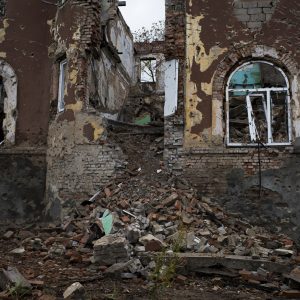The Stream, June 21: Refugees in Uganda Lack Adequate Water, Aid Group Says
The Global Rundown
Poor water and sanitation conditions could contribute to a medical emergency at refugee camps in Uganda, according to Médecins Sans Frontières. Activist groups are calling on federal agencies to speed up studies of flood protection measures for New York City. A heat wave in London has caused a spike in water demand, leading to drops in water pressure for some residents. Peru is considering stricter construction regulations in response to mudslides and floods that devastated Lima earlier this year. A new government inquiry will assess how climate change could threaten Australia’s national security. Researchers in Florida say they have found an effective way to get neighborhoods to voluntarily cut water use.
“The international community has failed to help resolve the conflict in South Sudan and is now failing to adequately help South Sudanese refugees in the region. Refugees are being put in an unimaginable position — to go without food and water, or risk their lives in a conflict just so they can eat.” –Dr. Leon Salumu, program manager for Médecins Sans Frontières. The aid organization says poor water and sanitation conditions could contribute to a medical emergency amid a shortage of resources for South Sudanese refugees who have fled to Uganda. (MSF)
By The Numbers
3.6 million homes Number in London supplied by Affinity Water, which saw parts of its distribution network lose water pressure as demand rose 50 percent above peak levels during a heat wave in the city this week. The Telegraph
$30 billion Estimated cost of a storm surge barrier proposed to protect New York City and the surrounding shoreline from the growing risk of major storms like Hurricane Sandy. The barriers are just one option still being studied by the U.S. Army Corps of Engineers — a process that needs to happen faster, according to activist groups that warn the next big storm may not wait. Bloomberg
Science, Studies, And Reports
Posting signs that inform residential neighborhoods about the typical water requirements for their lawns, as well as the most recent local rainfall data, prompted significant water savings, according to a study published by researchers at Florida Atlantic University. Lawn-watering rates in the neighborhoods where the signs were posted remained 41 percent below the rates in a control neighborhood, the study found. Phys.org
On The Radar
Australia is beginning a new Senate inquiry into the effects of climate change on the country’s national and regional security, which will conclude in December. The Asia-Pacific region is expected to be particularly hard-hit by natural disasters and rising sea levels. Guardian
Leaders in Peru, including the president, have called for stricter construction regulations in places like Lima in order to prevent future mudslide disasters. Triggered by heavy rains earlier this year, mudslides swept away and damaged many homes that were self-built by residents in vulnerable locations. Guardian
In context: Heavy rains unleash mudslides and destruction in Peru.
A news correspondent for Circle of Blue based out of Hawaii. She writes The Stream, Circle of Blue’s daily digest of international water news trends. Her interests include food security, ecology and the Great Lakes.
Contact Codi Kozacek




